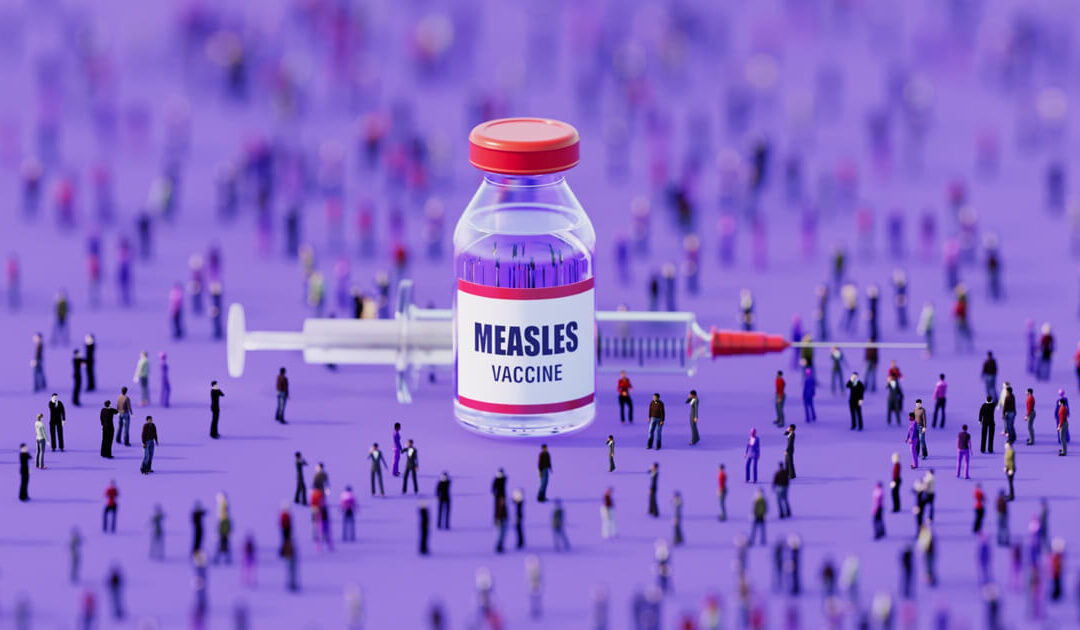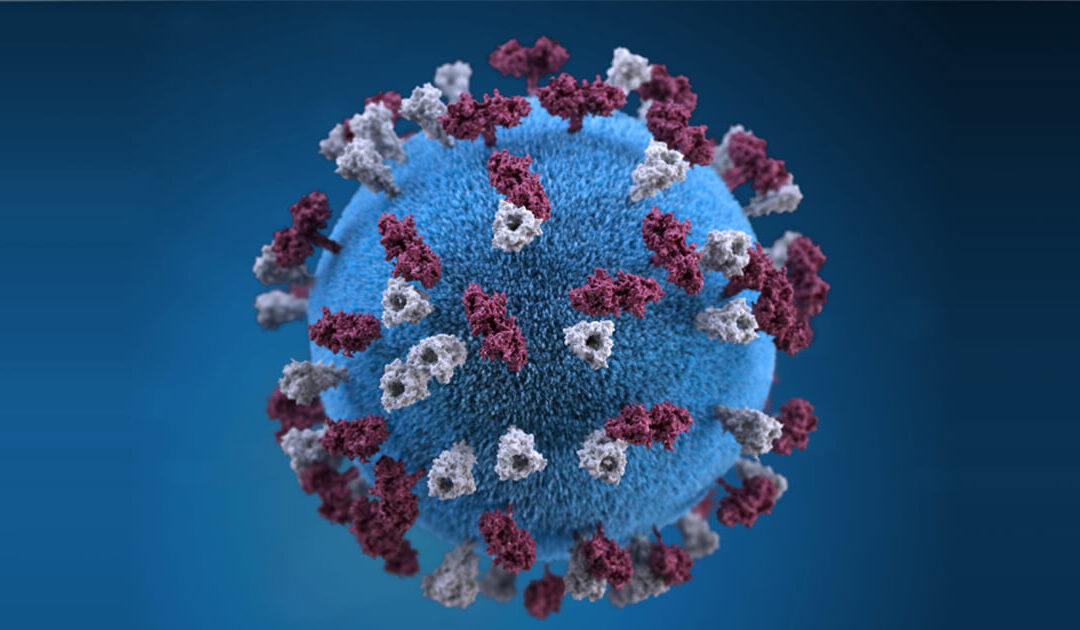With measles cases on the rise in the United States, some people are looking for alternatives to vaccination – such as vitamin A.


Myths and Misconceptions: Is Vitamin A a Cure-All for Measles?
April 7, 2025
With measles cases on the rise ![]() in the United States, some people are looking for alternatives to vaccination – such as vitamin A
in the United States, some people are looking for alternatives to vaccination – such as vitamin A ![]() .
.
But when it comes to protecting personal and public health, vitamin A is not a substitute for vaccination. The vaccine, typically administered in two doses as the measles, mumps, and rubella (MMR) vaccine during early childhood, is the best way to prevent measles and has been shown to be 97% effective ![]() . Over the past several years, experts have warned that vitamin A misinformation could lead to excessive intake, resulting in vitamin A toxicity
. Over the past several years, experts have warned that vitamin A misinformation could lead to excessive intake, resulting in vitamin A toxicity ![]() .
.
In fact, the National Foundation for Infectious Diseases ![]() (NFID) issued a clear and direct statement in 2020 on the relationship between vitamin A and measles:
(NFID) issued a clear and direct statement in 2020 on the relationship between vitamin A and measles:
- Vitamin A does not prevent measles.
- High doses of vitamin A can be harmful.
- Vaccination remains the most effective way to prevent measles.
An Ounce of Prevention is worth 200,000 IU of Cure
A typical vitamin A supplement contains about 900 International Units (IU) ![]() . For healthy adults, doctors strongly advise against consuming more than 10,000 IU of vitamin A per day
. For healthy adults, doctors strongly advise against consuming more than 10,000 IU of vitamin A per day ![]() for adults and not more than 2,000 IU for children from birth to three-years old
for adults and not more than 2,000 IU for children from birth to three-years old ![]() .
.
However, in cases when young children are hospitalized with severe measles, the World Health Organization (WHO) recommends two doses of 200,000 IU of vitamin A ![]() over the course of two days to help reduce complications. It is important to note that this treatment is closely monitored by healthcare professionals.
over the course of two days to help reduce complications. It is important to note that this treatment is closely monitored by healthcare professionals.
Even in those cases, vitamin A is not a cure for measles – it only helps to manage symptoms, and no amount is going to prevent measles infection ![]() . In fact, excessive vitamin A
. In fact, excessive vitamin A ![]() consumption can lead to a host of problems. Vitamin A toxicity occurs when someone takes more vitamin A than their body can adequately process. Symptoms of overusing vitamin A include headaches, dizziness, and nausea
consumption can lead to a host of problems. Vitamin A toxicity occurs when someone takes more vitamin A than their body can adequately process. Symptoms of overusing vitamin A include headaches, dizziness, and nausea ![]() and chronic overuse can eventually damage internal organs, including the liver and kidneys
and chronic overuse can eventually damage internal organs, including the liver and kidneys ![]() .
.
Physicians are already seeing the consequences of vitamin A overconsumption. In Lubbock, Tex., pediatricians have reported treating children with impaired liver function due to excess vitamin A ![]() . This comes as Texas is experiencing its largest measles outbreak in over 30 years
. This comes as Texas is experiencing its largest measles outbreak in over 30 years ![]() .
.
The Limited Power of Vitamin A
While vitamin A is used routinely to aid measles cases ![]() , the context in which this treatment is used is key. Studies demonstrating the benefits of vitamin A were conducted in areas where deficiency was common
, the context in which this treatment is used is key. Studies demonstrating the benefits of vitamin A were conducted in areas where deficiency was common ![]() – often due to poor nutrition. One study found that the patients who benefited most from vitamin A were already showing signs of severe malnutrition
– often due to poor nutrition. One study found that the patients who benefited most from vitamin A were already showing signs of severe malnutrition ![]() .
.
But what about places where vitamin A deficiency isn’t a widespread issue? Research in Italy ![]() found no significant improvements in measles outcomes after vitamin A supplementation.
found no significant improvements in measles outcomes after vitamin A supplementation.
Here in the United States, vitamin A deficiency ![]() is rare, meaning the risks of taking too much far outweigh any potential benefits. The NFID has called for more studies within the United States, but so far, there’s no evidence that vitamin A makes a meaningful difference in well-nourished populations.
is rare, meaning the risks of taking too much far outweigh any potential benefits. The NFID has called for more studies within the United States, but so far, there’s no evidence that vitamin A makes a meaningful difference in well-nourished populations.
Even if someone with measles benefits from vitamin A treatment, they can still spread the virus to those around them. That can have fatal impacts for people who cannot be vaccinated or with weakened immune systems, such as children too young to be vaccinated ![]() and people with cancer
and people with cancer ![]() .
.
The only effective way to prevent infection is through vaccination. The measles, mumps, and rubella (MMR) vaccine ![]() , given in two doses during early childhood, is 97% effective at preventing measles.
, given in two doses during early childhood, is 97% effective at preventing measles.
The Bottom Line
While vitamin A can help in specific cases, it’s not a cure. The best way to prevent measles – and to protect those around you – is through vaccination.
To learn more about how to protect your health and the health of your community, talk to your physician or contact the Allegheny County Health Department ![]() .
.

Measles and Herd Immunity: What It Is and How It Protects Our Community
The recent measles outbreaks in the United States serve as an important reminder of the power of vaccinations and the role of community protection in the fight against infectious diseases. Home > Blog March 25, 2025 by Robin Oliverio, Ph.D....

How Unique is the Recent Measles Outbreak?
A Look at Measles Trends Nationwide and How Allegheny County Compares. Home > Blog March 18, 2025 by Robin Oliverio, Ph.D. A Look at Measles Trends Nationwide and How Allegheny County Compares This is the second story in a...

Who Gets Measles and Why Is it Back?
What you need to know about the latest outbreak in the United States. Home > Blog March 11, 2025 by Robin Oliverio, Ph.D. What You Need to Know About the Latest Outbreak in the United States For over two decades, measles was a...


